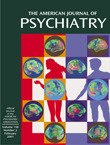Posttraumatic Bell’s Palsy
Mr. A, a 36-year-old train driver, accidentally ran over a suicidal man as the train pulled into a station. Mr. A reacted with horror but continued working. Six weeks later he suddenly noticed two young men standing on the tracks, obviously testing their courage, a few hundred yards in front of his train. No accident occurred, but he was unable to work and called in sick. He felt weak and noticed a prickling on the right side of his face, followed by numbness. The next morning he noticed that his right lip was drooping, saliva was dripping out of the right side of his mouth, and he was unable to blink his right eye. Two days later a neurologist discovered hypoesthesia of his right cheek, Bell’s phenomenon on his right side, and a loss of taste on the right side of his tongue; the neurologist diagnosed Bell’s paralysis on his right side. Total recovery took 3 weeks. During this period Mr. A did not go to work; he suffered from nightmares and depression and persistently relived the trauma.Then left facial paralysis appeared. Mr. A was admitted to a university hospital, where peripheral facial palsy on the left side was confirmed. An electrophysiological examination by means of neurography and testing of the orbicularis oculi reflex revealed an incomplete lesion. The results of a lumbar puncture and extensive laboratory tests were negative, as were the results of magnetic resonance imaging. Examinations of serum and CSF provided no evidence of an infectious etiology (e.g., Lyme borreliosis, herpes simplex, varicella-zoster virus, HIV, cytomegalovirus, or Epstein-Barr virus). Recovery took 2 months. In the meantime, posttraumatic stress disorder was diagnosed.Once during psychotherapy in a rehabilitation clinic, Mr. A was filled with tremendous fear before a treatment session in which he expected to be confronted with what had happened to him. A prickling sensation on the right side of his face reappeared, and according to his and his therapist’s reports, temporary right facial paralysis remained for a couple of hours.
References
Information & Authors
Information
Published In
History
Authors
Metrics & Citations
Metrics
Citations
Export Citations
If you have the appropriate software installed, you can download article citation data to the citation manager of your choice. Simply select your manager software from the list below and click Download.
For more information or tips please see 'Downloading to a citation manager' in the Help menu.
View Options
View options
PDF/EPUB
View PDF/EPUBGet Access
Login options
Already a subscriber? Access your subscription through your login credentials or your institution for full access to this article.
Personal login Institutional Login Open Athens loginNot a subscriber?
PsychiatryOnline subscription options offer access to the DSM-5-TR® library, books, journals, CME, and patient resources. This all-in-one virtual library provides psychiatrists and mental health professionals with key resources for diagnosis, treatment, research, and professional development.
Need more help? PsychiatryOnline Customer Service may be reached by emailing [email protected] or by calling 800-368-5777 (in the U.S.) or 703-907-7322 (outside the U.S.).

